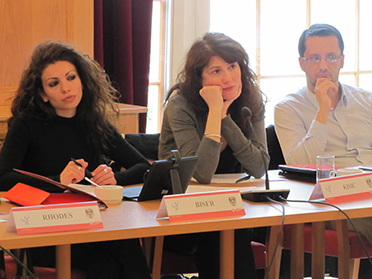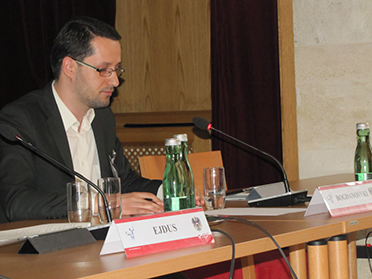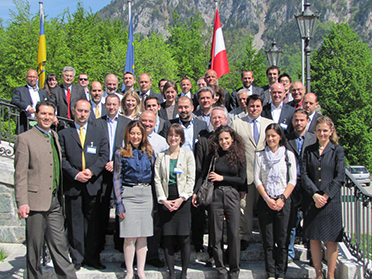EU Meeting its Challenges

On 4 May, Analytica's Security Research Fellow Andreja Bogdanovski delivered a speech about the implications of the EU crisis over the stability and security in the Western Balkans in the framework of the 24th workshop of the Partnership for Peace Consortium - Study Group for Regional Stability in South East Europe.
On 4 May, Analytica's Security Research Fellow Andreja Bogdanovski delivered a speech about the implications of the EU crisis over the stability and security in the Western Balkans in the framework of the 24th workshop of the Partnership for Peace Consortium - Study Group for Regional Stability in South East Europe.
He highlighted that in the last decade the EU faced several crises, starting from the enlargement (institutional) crisis in 2004, followed by the constitutional crisis having its peak with the referendums in France and the Netherlands in 2005. Therefore the word crisis is not unknown in the Brussels hallways. Even in such challenging times the EU has kept its enlargement policy towards the Western Balkans open and the accession of Croatia to the EU next year can serve as good evidence for this. However what makes this crisis to differ from the previous two is the possible implications it has on the home policies of the member states. The rise of populist and nation-centric policies which are for example threatening the idea of multiculturalism, free movement of people etc. are just some of the examples which can have a negative spillover effect in the region. Coupled with the skyrocketing unemployment rates and economic uncertainty Andreja posed the question whether the region still sees the EU as attractive destination as it was considered to be just few years ago? If there is one word to describe the situation in the Western Balkans today it is the word "deadlock".
- The situation in Bosnia and Herzegovina as well as in Kosovo remains to be considered as tricky while Macedonia is also not doing any better. The unresolved name dispute with Greece pushed the country away from its EU path for several years now.
- The increasing calls for secession of the Kosovo North and the arrests play between Belgrade and Pristina display the fragile environment in the newly formed country.
- While in Bosnia the required reforms for fostering the EU integration showed limited progress even though they are still not fully incompliance with what the EU is hoping for. Example of this is the SAA
which was concluded in 2008 and has never been put into force.
- The deadlock in Albania regarding the participation of the opposition political parties still blocks the country from acquiring the EU candidacy, something which Tirana is hoping to get since 2009.




